As an artist, it’s essential that you understand how to take art criticism—whether it be good or bad.
If you don’t, you’ll have a difficult time learning how to become a better artist because you won’t have useful feedback to help you improve your skills and artwork.
That’s why, in today’s article, I’m sharing with you several valuable strategies to help you:
- Learn about art criticism and why it’s important for artists
- Understand how to respond to art criticism (positive and negative)
- Appreciate the benefits of receiving constructive criticism
By the time you’re done reading, you’ll understand how to take art criticism like a pro and use that knowledge to become a stellar artist.
Table of Contents
What is Art Criticism?
Art criticism is a process that evaluates, interprets, and discusses works of art. It uses a combination of theory, critique, and judgement to assess artwork with the goal of judging the piece’s overall beauty.
When seeking professional evaluation, there are 4 types of art criticism analysis which are used to examine a work of art. The 4 types include:
- Description (describing the piece without any bias)
- Analysis (critically assessing the piece)
- Interpretation (using context to better understand the piece)
- Judgement (assessing the piece for originality, composition, etc.)
However, when artists receive art criticism from family, friends, peers, and strangers, criticism most often manifests in the form of subjective opinion and personal tastes.
For this reason, it’s important to distinguish whether the art criticism you’re receiving is coming from a trained professional or from a passive observer of art.
By the way, is art criticism objective or subjective? Technically, it’s both. Nonetheless, feedback from a trained professional is likelier to be more objective whereas feedback from friends or family is likelier to be more subjective.
How Do You Respond to Art Criticism?
As an artist, your artwork will be scrutinized by someone at some point in time. It’s inevitable because all works of creation can be subject to criticism.
When you make time for art and put so much effort into your artwork,
For this reason, it’s wise to understand how to take art criticism—both positive and negative—so that you can act professionally whenever you receive feedback.
In the following sections, you’ll learn about 5 different ways that you can train yourself to handle art criticism with grace.
1. Keep Your Emotions in Check
There’s nothing worse than receiving negative art criticism that incites anger, embarrassment, or denial.
Especially when you regularly make time for art and put so much effort into your artwork.
So, if you’re prone to becoming defensive whenever you receive criticism, you should work on learning how to control yourself from reacting emotionally.
For example, if you feel yourself becoming frustrated and self-justifying, ask yourself the following questions:
- Why am I feeling defensive?
- Has the criticism hurt my pride or ego?
- Is there an important lesson that I can learn from the art criticism I have received?
Conversely, if you have received art criticism that pleases you, reflect upon the following questions:
- Why does the positive criticism make me feel good?
- Do I feel validated or appreciated for all my hard work?
- Which skills am I excelling at, and which skills could use more work?
Note: If you struggle with your confidence and self-worth as an artist, I highly recommend that you check out this article on 21 positive daily affirmations for artists.
2. Take the Time to Listen to the Criticism
Art criticism is useful for all creative individuals, not just trained professionals.
So it’s important to understand that art criticism benefits self-taught artists and hobbyists, too. If you identify as such, then it’s worth seeking constructive criticism to help you grow as an artist.
When receiving art criticism, it’s wise to take the time to understand what the critic is saying so that you understand why he or she is giving you such feedback.
In other words, one of the best artist habits is to understand the reasoning behind the criticism you receive.
It’s often all too easy for us, as artists, to be limited by our own personal biases and feelings.
So the next time someone gives you constructive criticism, take the time to understand that person’s perspective and explanations.
After you’re done listening, you can follow up with the critic by asking some clarifying questions such as:
- Why do you believe I need to focus on [point of criticism]?
- How do you think I can improve [skill]?
- What is your best piece of advice to help me grow as an artist?
When all is said and done, don’t forget to thank the critic for taking his or her time to give you feedback.
After all, being polite and professional is the best way to handle art criticism.
3. Identify if the Criticism is Reputable
Essentially, you should first distinguish whether the person delivering the criticism is a reputable source.
For example, there are certain individuals with relevant credentials who are more likely to give you honest, professional, and constructive feedback, including:
- Art instructors
- Art historians
- Gallery or museum curators
- Professional art critics
- Professional artists
On the other hand, there are individuals who are more likely to give you subjective feedback based on personal tastes, including:
- Friends
- Family members
- Classmates
- Coworkers
- Strangers
Therefore, the biggest takeaway is to first identify whom the criticism belongs to. Ask yourself whether this person understands art.
If they do, then take their art criticism seriously because they are likely giving you advice that will help you improve your skills and techniques.
And if the person does not really understand art, then you should be aware that you are receiving highly personalized feedback.
Overall, listening to art criticism from many sources is smart. However, some feedback carries more clout than others.
4. Determine if the Criticism is Constructive
It’s one thing to receive art criticism.
But it takes a specific skill to determine whether that criticism is constructive or destructive.
Let’s face it: some people are just very opinionated and mean, especially on social media and the Internet at large.
The hard truth is that some people won’t give you criticism with the intention of helping you.
For this reason, you must come to terms with the fact that not everyone understands how to give constructive criticism in art.
So, it’s important to be able to determine whether the feedback you’ve received is beneficial or not. To help you determine whether the feedback is insightful, ask yourself the following questions:
- Does this criticism have merit? If not, why is that so?
- Is the criticism constructive in nature, or it is destructive?
- Can I learn something from this criticism, or is it unfounded?
If any of your responses are negative, then you know that the art criticism you’ve received isn’t very credible.
So just ignore it the best you can and move on.
Believe me, developing this skill will save you a lot of frustration, disappointment, and stress.
And you’ll be glad when you only focus your time management and energy on the constructive criticism that is beneficial to your overall improvement.
5. Ask for a Second or Third Opinion
Personally, I always seek more than 1 opinion whenever I’m looking for feedback; especially when I’m trying to improve myself.
Asking for a second or third opinion is smart because it gives you the opportunity to hear multiple opinions.
When you consider several different opinions, you are able to notice reoccurring themes among the criticism. Examples may include:
- Many people like the way I use colours in my artwork
- Several people have told me to focus more on creating better composition
- My figure drawings are nicely shaded, but I should focus more on accurate anatomy and proportions
When you notice reoccurring themes among the criticism you receive, you can take that as a sign that those are the pieces of advice that you should take to heart.
What’s more, being open to criticism gives you more to think about when it comes how you perceive your own artwork, such as through the limitations of perfectionism.
In a nutshell, having an open-minded attitude and a willingness to improve are great qualities that will help you grow as an artist.
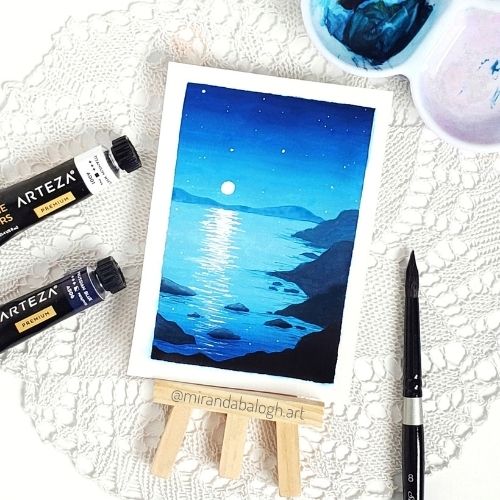
Why Do We Need Art Criticism?
Now, you might be wondering: What is the purpose of art criticism?
Understanding the answers to this question will illustrate why art criticism is important for the growth and development of artists.
First of all, art criticism in the form of advice and feedback helps us understand how to fix our mistakes.
For instance, it’s not always easy for you to see that your anatomical proportions are a bit off. Or that your colour mixing skills are lacking.
So, receiving feedback is a great way to understand how to fix your mistakes so that you can master certain skills more easily.
Secondly, art criticism helps you understand which skills or techniques are lacking so that you can focus more time and effort on refining these areas.
You might think that your shading, inking, or painting skills are amazing. But what if you’re actually lacking fundamental knowledge?
In this case, art criticism will help you zone in on skills or techniques that aren’t up to par with the rest of your artistic and creative skillset.
Lastly, art criticism helps artists grow as creative individuals because you are encouraged to improve your artistic abilities. Feedback often gives you guidance on how to achieve your artistic goals.
For example, criticism might open your eyes to the fact that your technical ability is lacking when it comes to drawing. Or that you should study light and shadow to add more contrast to your art.
Whatever the case, art criticism allows you to evaluate where you are on your art journey so that you become aware of how to improve your skills and abilities.
For this reason, you should never be shy or embarrassed about asking for art criticism because it actually benefits you.
Conclusion
In the end, art criticism is a wonderful way to receive constructive criticism.
It helps artists become better creators and storytellers.
It makes you aware of your strengths as well as your weaknesses.
And, most importantly, art criticism gives you guidance on how to go about improving your skills and techniques.
Without it, you don’t know what skills to work on or how to improve your art education.
So, the next time you finish an artwork, don’t be afraid to ask for feedback from fellow artists or friends.
You’ll be grateful for the praise you receive, and the feedback you get will help you excel in your art career.
Just try it out and see for yourself!
Have you found that art criticism has helped you become a better artist? Share your thoughts in the comments below!

Miranda Balogh
Artist & Online Educator

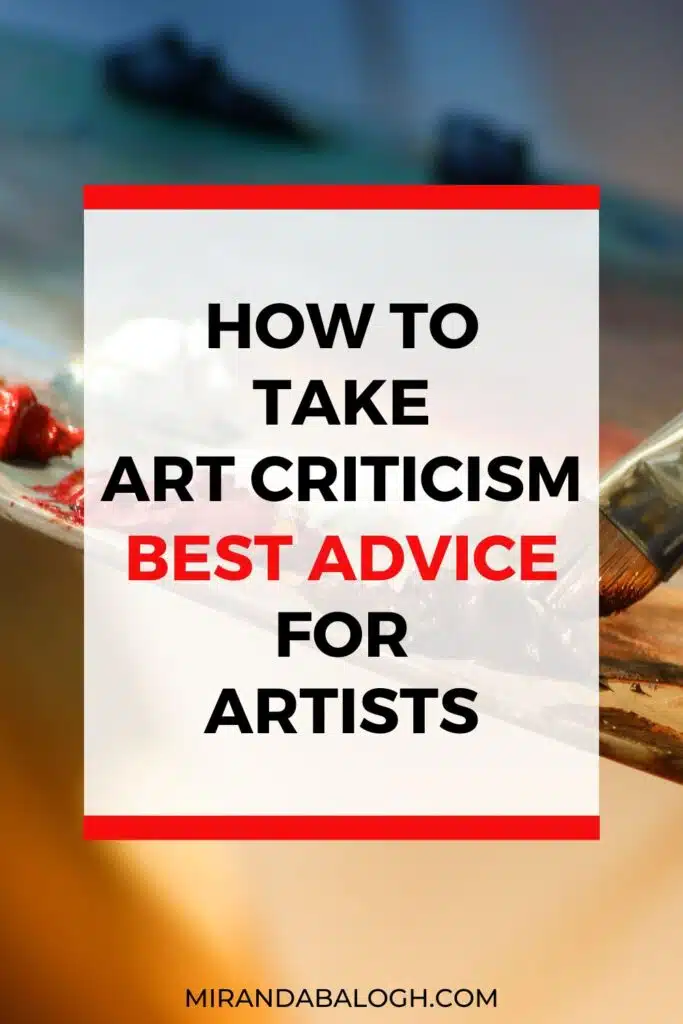

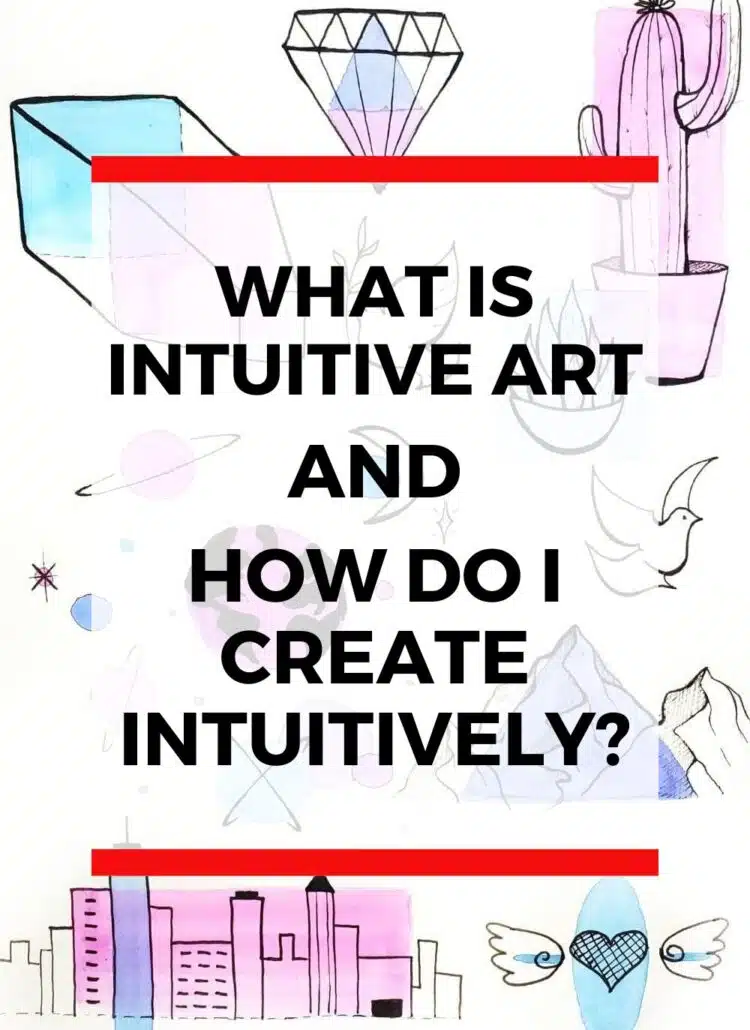
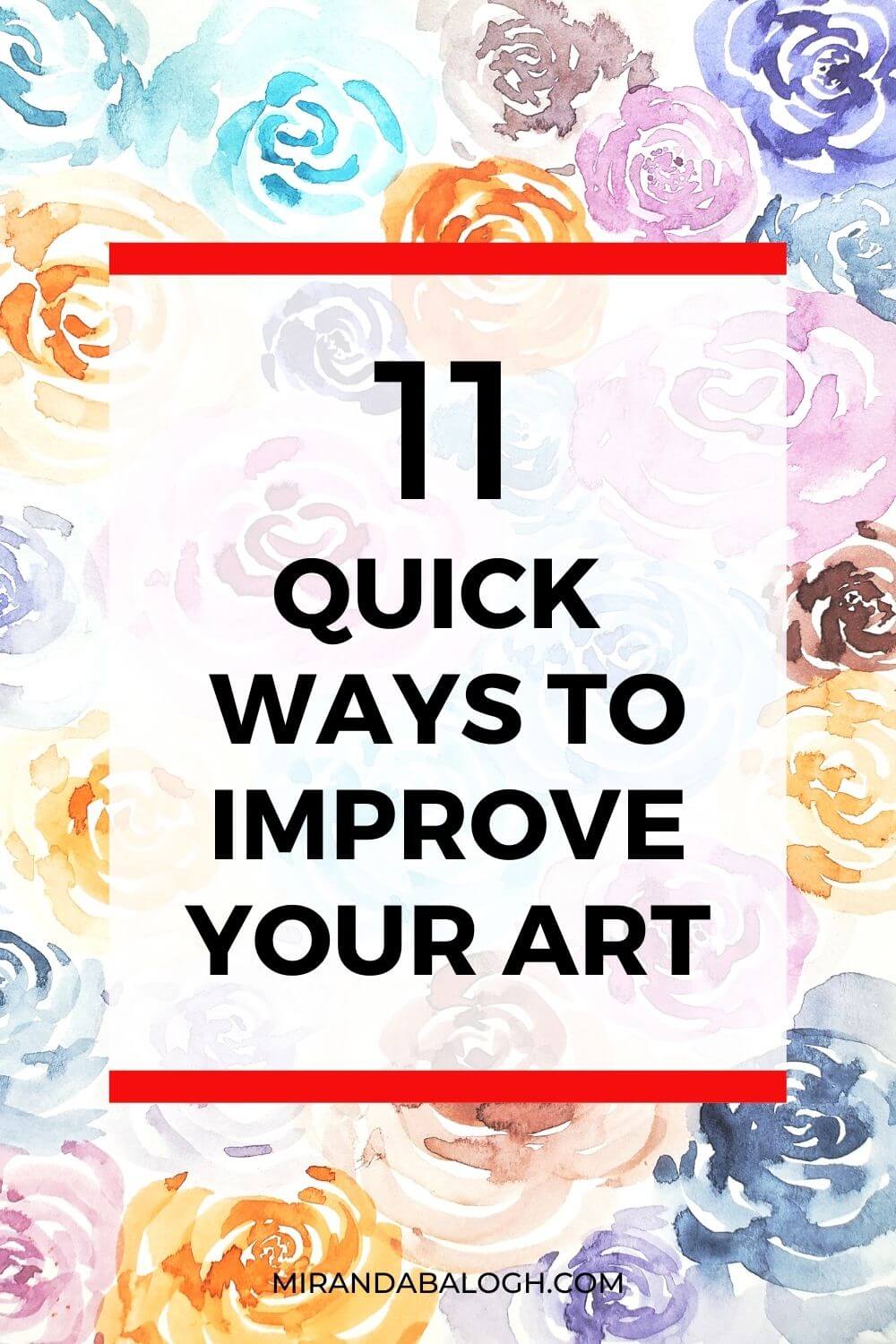
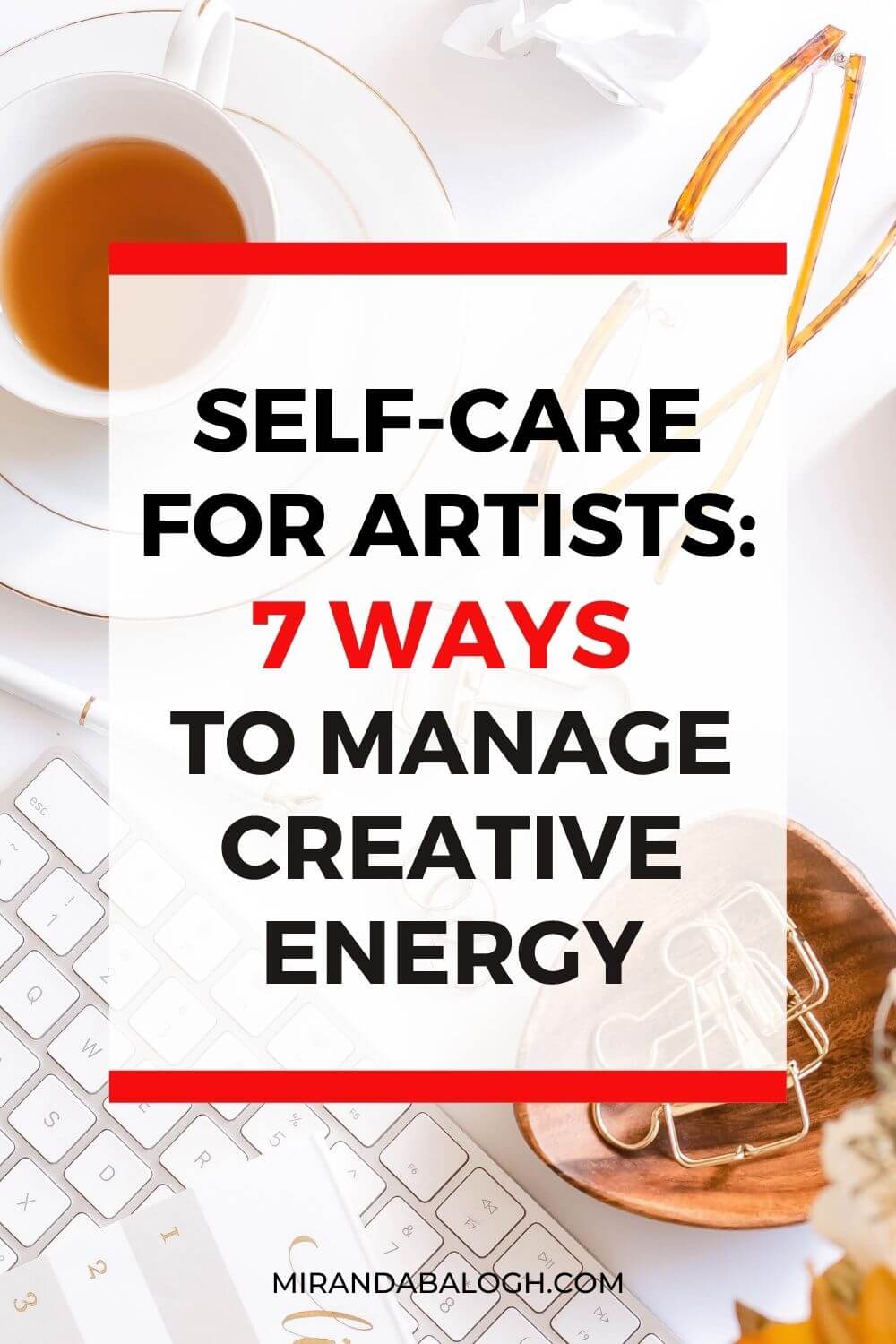
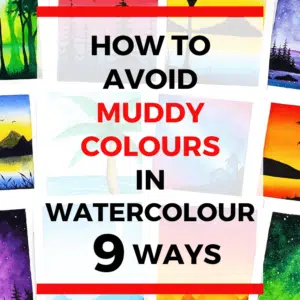
I have found that, at least in my experience, it takes a great deal of trust for people you know to give critical feedback. Friends and family typically want to tell you how great you are.
I have one friend that I can always count on to tell me what I am doing wrong. I value his criticism above all others.
I have never been in a situation where I was given criticism by someone outside of my social circle.
Yes, my situation seems similar to yours. It’s great having at least 1 friend who can be open, honest, and unfiltered with their art criticism because ultimately that feedback will make us grow as artists and creatives.
Absolutely.
I like feedback to boost my art knowledge, but find it really difficult to trust my close friends and family members. Because they always tell me how good I am with my work. So, it hard to get valuable feedback. I’d rather choose professionals to give me feedback.
Agreed! Positive reinforcement is great for boosting one’s self-esteem, but constructive criticism will ultimately help us become even better artists. Thanks for sharing this insight!
Thanks for your advice
You’re welcome!
I have never been good at taking feedbacks or criticism. This helps. Thanks for sharing
Thanks! A lot of this advice can be applied to other types of criticism, too, not just art. So I’m glad this article served you well!
This is amazing advice not just for our art but all aspects of our lives! Criticism can be hard to take but as long as it’s coming from a good place it can help us grow if we let it. Thank you for sharing!
Yes, I completely agree! Learning how to take criticism is a useful skill in all aspects of life, whether that be at work, in school, with friends and family, etc. Thank you for sharing this very important insight.
I feel like your tips on dealing with art criticism are not only good for paintings etc, but written art as well. Thank you for sharing.
I never thought about it that way, but you’re absolutely right! Thanks for sharing this insight.
Good Guide. Thanks for the valuable input.
You’re welcome!